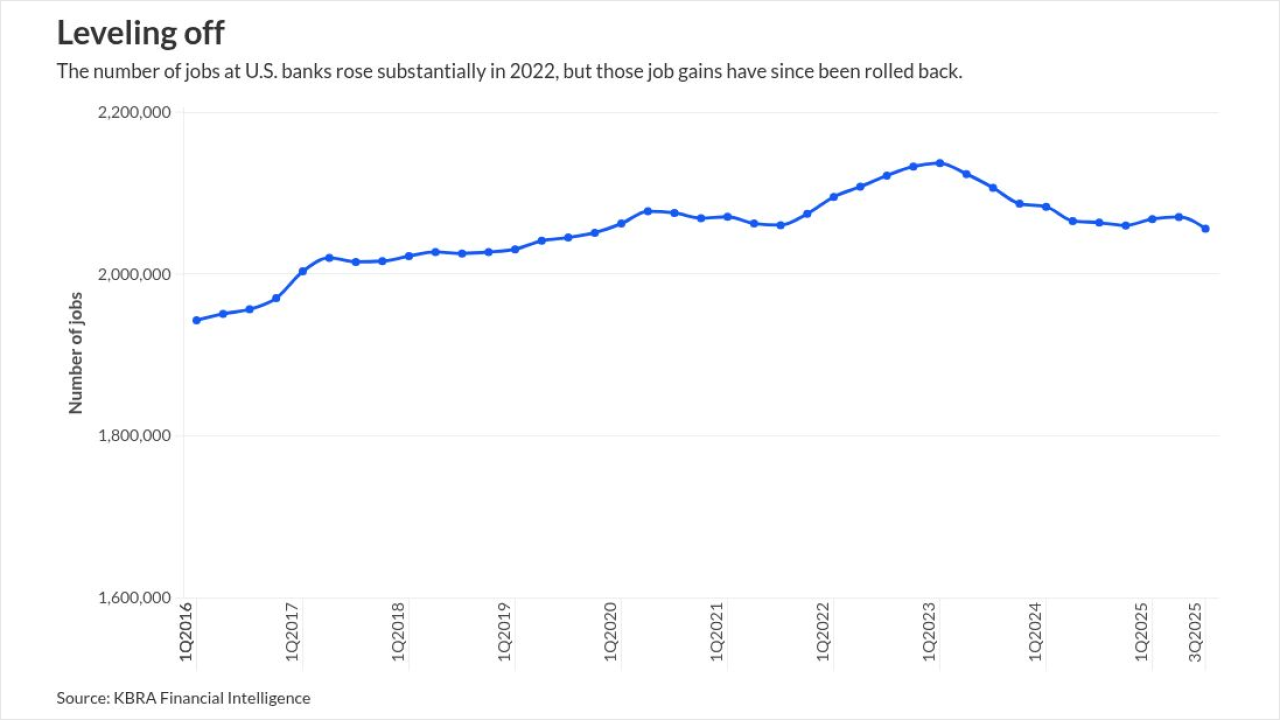-
Startups that focus on person-to-person payments or peer-to-peer lending may well be the future heavyweights of the financial services industry. Banks must either band together to create viable alternatives or risk losing relevance.
July 16 -
Forcing traders to strap computers on their heads may sound extreme, but consider the current threat. Saving billions from trading losses might take the sting out of the loss of privacy.
April 9 -
The idea of bringing criminal charges against one of the nations larger banks has become untenable. The potential cost in jobs, probable shareholder losses and market turmoil would be horrific.
September 9 -
Show me an industry with artificially high barriers to entry, and you will almost certainly find dissatisfied customers paying higher prices to large, protected providers.
June 27
In just 11 years, all banks in the U.S. will be gone. At least, that's what extrapolating the current pace of bank consolidation would suggest. Between April and August of this year, there were 79 mergers or closings and 9 failed banks, according to the Federal Deposit Insurance Corp. Guess how many banks were
We understand why banks merge (to reduce expenses) and why banks fail (failed credit policies). But why has the establishment of new banks virtually stopped since the crisis?
Perhaps the most fundamental reason that investors are not rushing to start small community banks is that the returns for smaller community banks are not terribly attractive. Current low interest rates and competition from tax-exempt credit unions make it difficult to generate even reasonable returns in the small retail market.
Regulation is another big reason. Since 2008, the Dodd-Frank Act has
Investors are also shying away from starting new, or "de novo" banks, because it is cheaper to buy a failing bank or tiny community bank that has already done all of the filing necessary for the charter. It's also faster, and in many ways, simpler.
Shadow banking and the internet are two more reasons that investors are shunning start-up banks. Small retail banks must compete against online peer-to-peer lenders such as Lending Club, Prosper and student lender SoFi. Many of the key services that made community banking so vital for so many years are now offered by companies that face a fraction of the regulation encountered by banks. The only advantages that the banking license appears to offer are the FDIC-insured deposits and access to the Federal Reserve discount window. But with rates at such low levels, the benefit of cheap deposits is minimal, while access to the discount window is offset by regulatory capital requirements. The costs associated with regulation appear to more than outweigh the benefits of the charter.
Finally, the enterprising individuals who would normally be interested in starting a bank now wonder, "Why would I assume the personal risk that goes with being a director or officer at a fledgling bank?" Since 2009, the FDIC has authorized 1,171
I'm not seriously suggesting that there will be no banks in 12 years. But it is entirely possible that rapid consolidation will continue for the time being. Unless rates spike, returns improve and regulators relax, would-be bankers will continue choosing to take their entrepreneurial spirit to other fields of business and finance. And that could be the end of banking as we know it.
Richard Magrann-Wells is a senior vice president and the
Financial Services Practice Leader for Willis North America.





